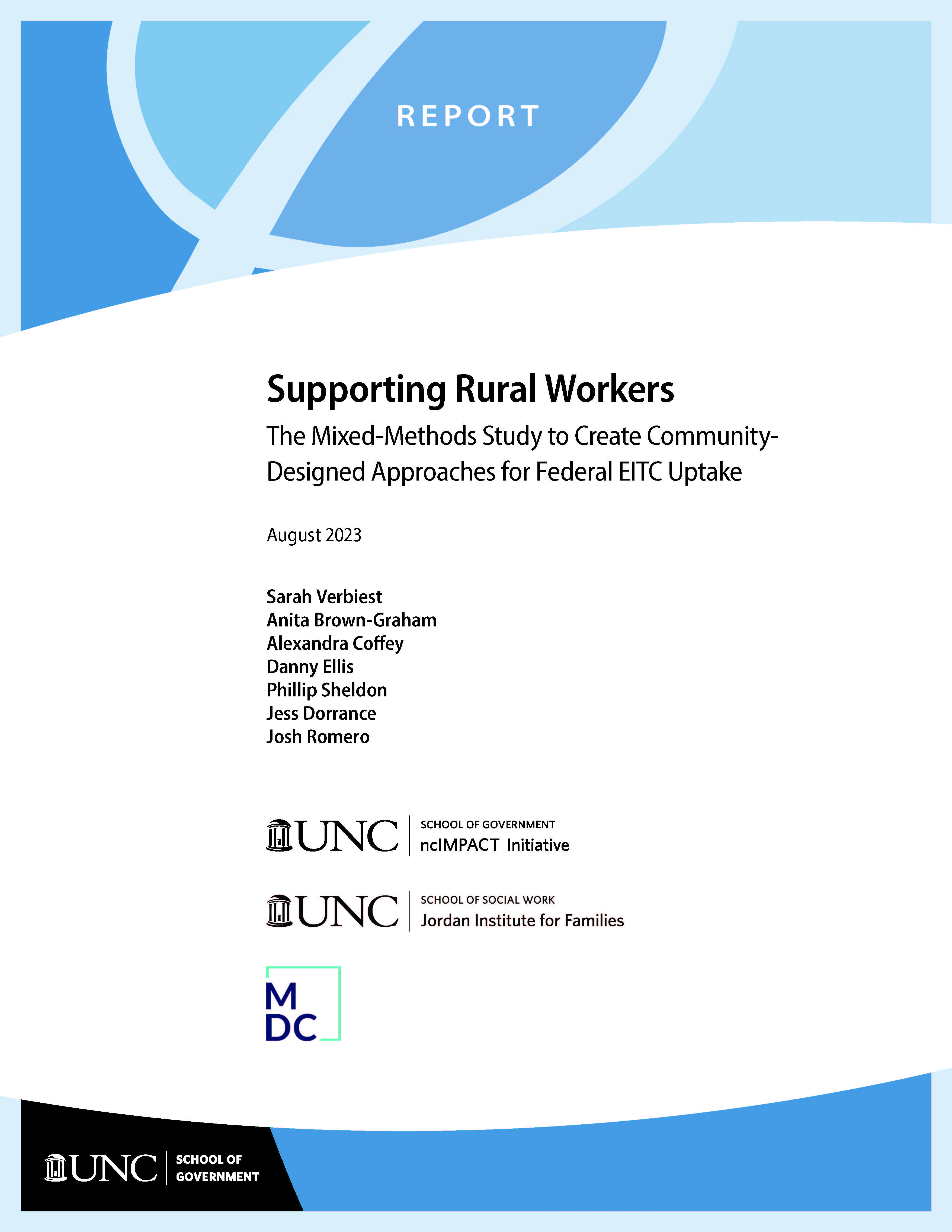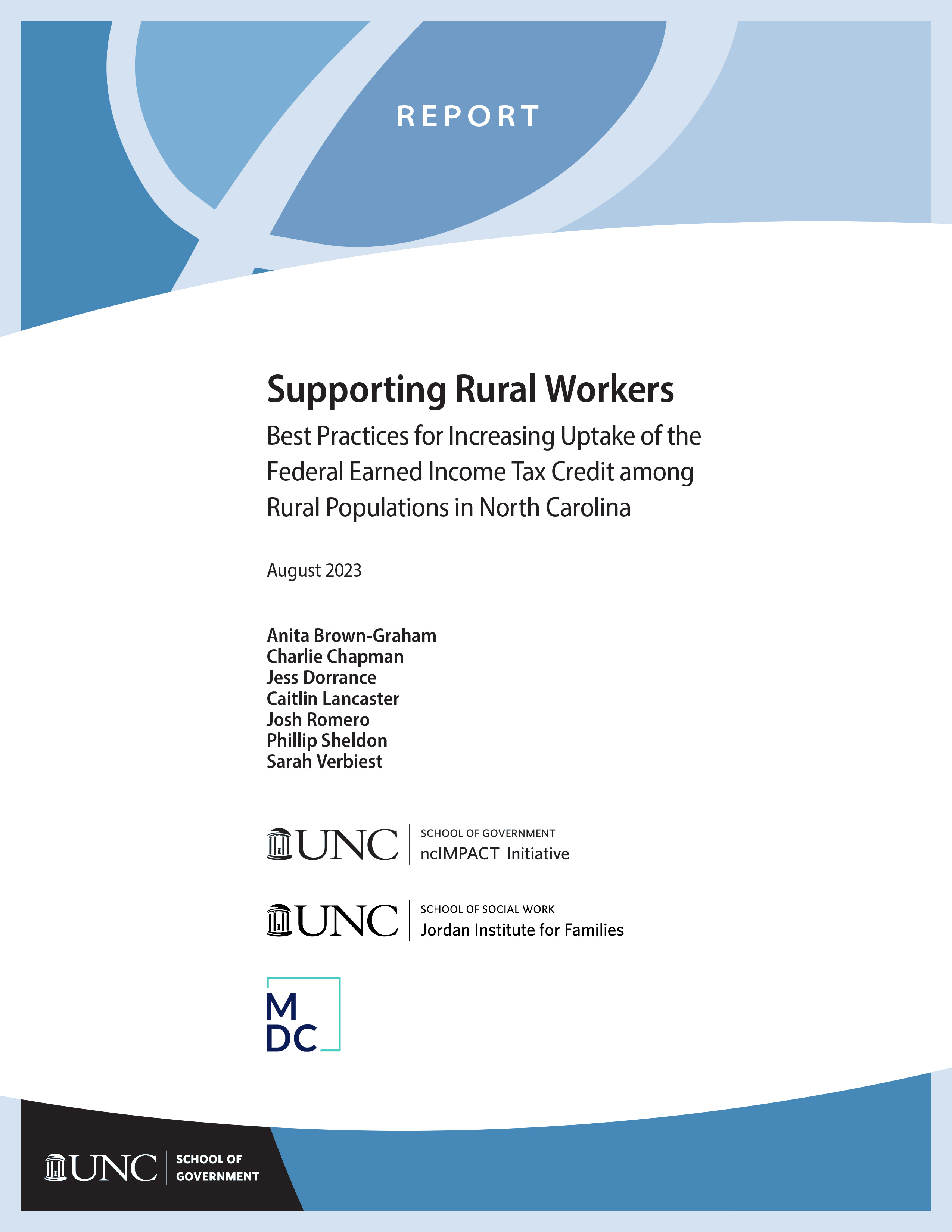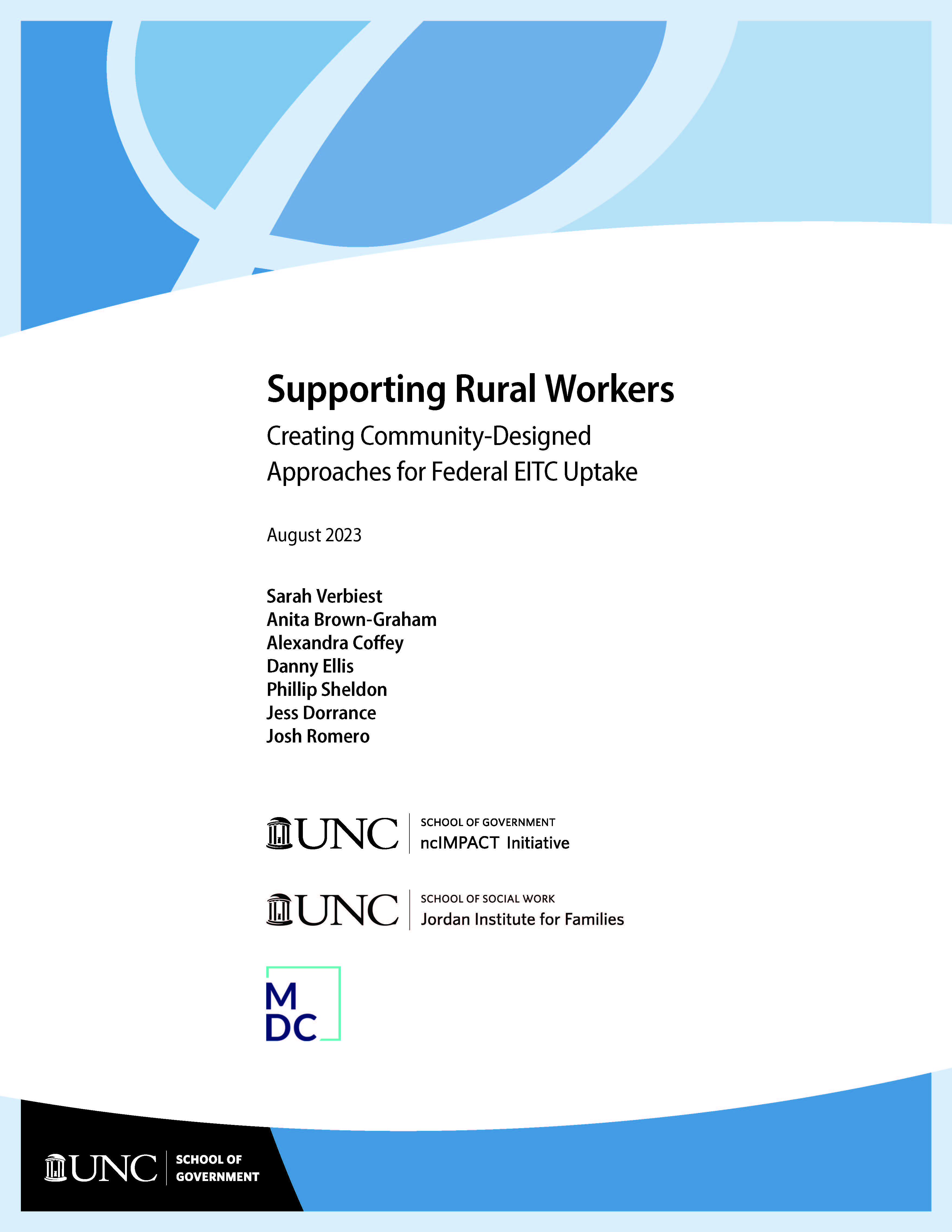Supporting Rural Workers: The Mixed-Methods Study to Create Community-Designed Approaches for Federal EITC Uptake
In North Carolina, four out of five eligible tax filers receive the federal Earned Income Tax Credit (EITC), a refundable tax credit for low-income workers. This means that roughly one million taxpayers are putting those critical funds, up to a maximum of over $6,900, back into their pockets. It also means that some eligible taxpayers are still missing out. Research on barriers to claiming the tax credit tends to focus on urban communities, with little attention to what keeps rural filers from claiming the credit.
Supporting Rural Workers: The Mixed-Methods Study to Create Community-Designed Approaches for Federal EITC Uptake discusses the methodology of a research project that examined EITC uptake in seven rural counties in North Carolina, including instruments used in participant interviews and selected quotes from key participants. It is one of three reports produced by this project, which was generously funded by the Robert Wood Johnson Foundation. The study was carried out by a research partnership between MDC Rural Forward, the Jordan Institute at the UNC School of Social Work, the ncIMPACT Initiative at the UNC School of Government, and Together Transforming Lives Inc.






